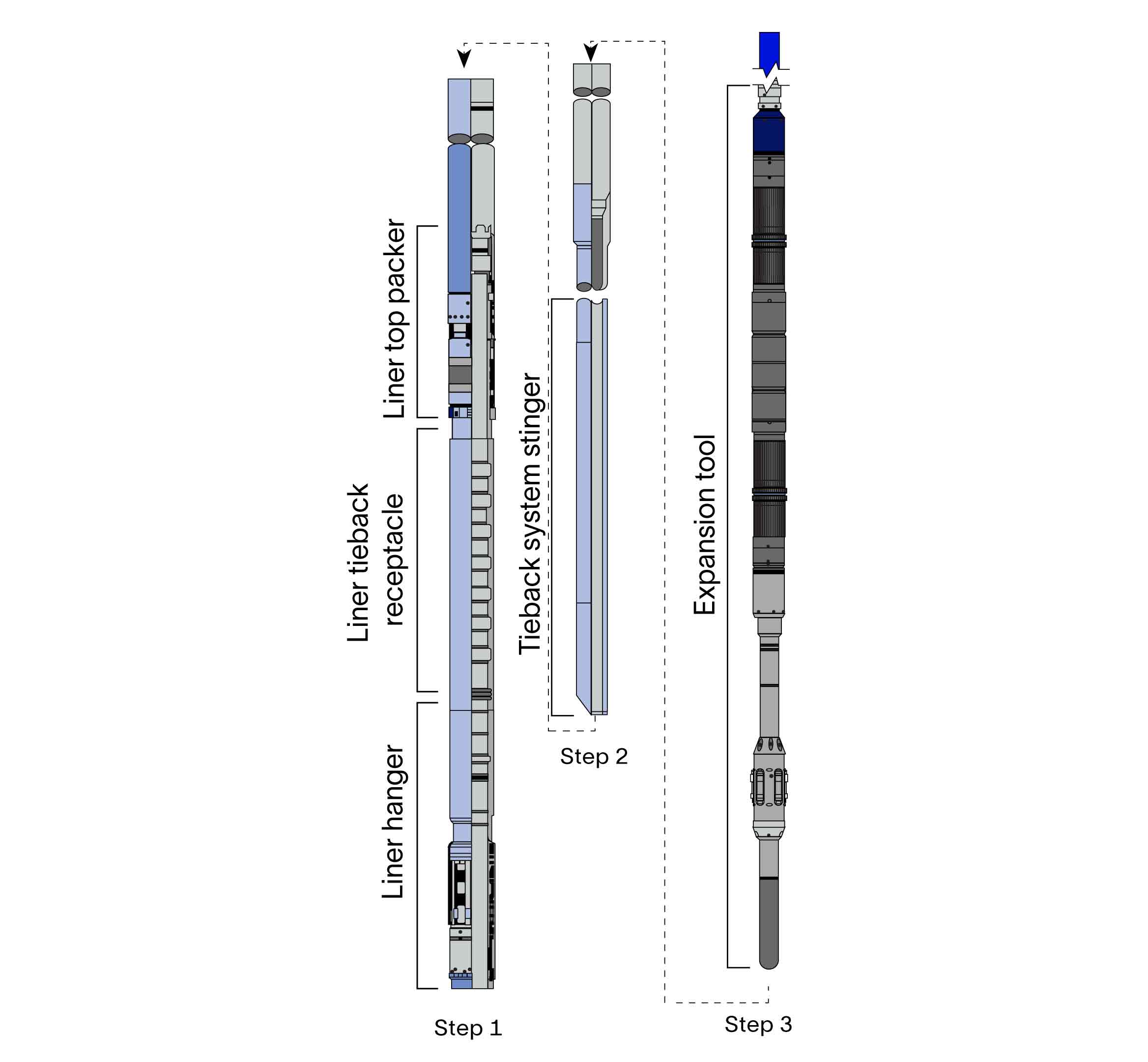Integrated liner hanger tieback system
Incorporating the Colossus liner hanger system and a gas-tight metal-to-metal tieback

The installation sequence is a simple three-step process.
- The liner is run in hole with the liner tieback system receptacle incorporating the metal-to-metal sealing elements and connected to the liner hanger. The liner is cemented in place.
- The tieback casing string is run in with the tieback system stinger on the bottom; the stinger is positioned within the receptacle.
- The stinger is expanded into the receptacle with the expansion tool, simultaneously anchoring the tieback casing and providing a permanent metal-to-metal, gas-tight connection between the liner and the tieback string.
The liner and casing tieback are tied with 14 individual metal-to-metal sealing points and no loss of ID. If the tieback string requires replacement at a later date (for example, because of casing damage or a workover), it can be cut above the permanently connected stinger. Subsequently, a new casing tieback string can be connected using the Casing Reconnect™ metal-to-metal, gas-tight casing repair system.
- Wells requiring a liner and tieback to
- protect the parent casing string during high-pressure testing operations
- accommodate a narrow window between the pore-pressure and fracture gradients
- address tubing movement concerns
- Wells requiring a gas-tight seal between the tieback receptacle and tieback string
- Remedial applications such as scab or stub liners
- Combines the flexibility of reaming and rotation during running in and cementing with the sealing integrity of a full casing string
- Improves ECD during cementing
- Anchors the upper casing to the liner for the life of the well using metal-to-metal sealing and anchoring technology
- Delivers an annular seal immediately on completion of the liner cement job to prevent gas migration
- Enables reinstatement of tieback string (if cut for casing repair or workover) using the Casing Reconnect metal-to-metal, gas-tight casing repair system
- Eliminates hydraulic anchors, midstring packers, and the need for cemented tiebacks
- Requires no elastomers, slips, or hydraulic cylinders for tieback
Is the integrated liner hanger tieback system appropriate for your well?
What's the difference between a traditional tieback receptacle and the integrated liner hanger tieback system?
The integrated liner hanger tieback system creates a fully anchored metal-to-metal seal by expanding the tieback directly into the liner system. A traditional tieback typically uses a floating seal anchored by mechanical devices or cement.
How is the pressure generated to make the expanded connection downhole?
The pressure is generated by multiplying normal rig-supplied pressure, using a downhole high-pressure intensifier located within a hydraulic expansion tool.
Does the well see any of the pressure from creating the connection?
No, all the pressure required for the operation is contained within the expansion tool.
Has this system been run before?
Yes, this system has been installed multiple times during demanding operations in the North Sea.
How do I remove the tieback in the event I need to recover the liner hanger system for sidetrack purposes?
The system is removed using standard fishing techniques.
Is there an option for sour service application?
Yes, materials for sour service applications are available.

